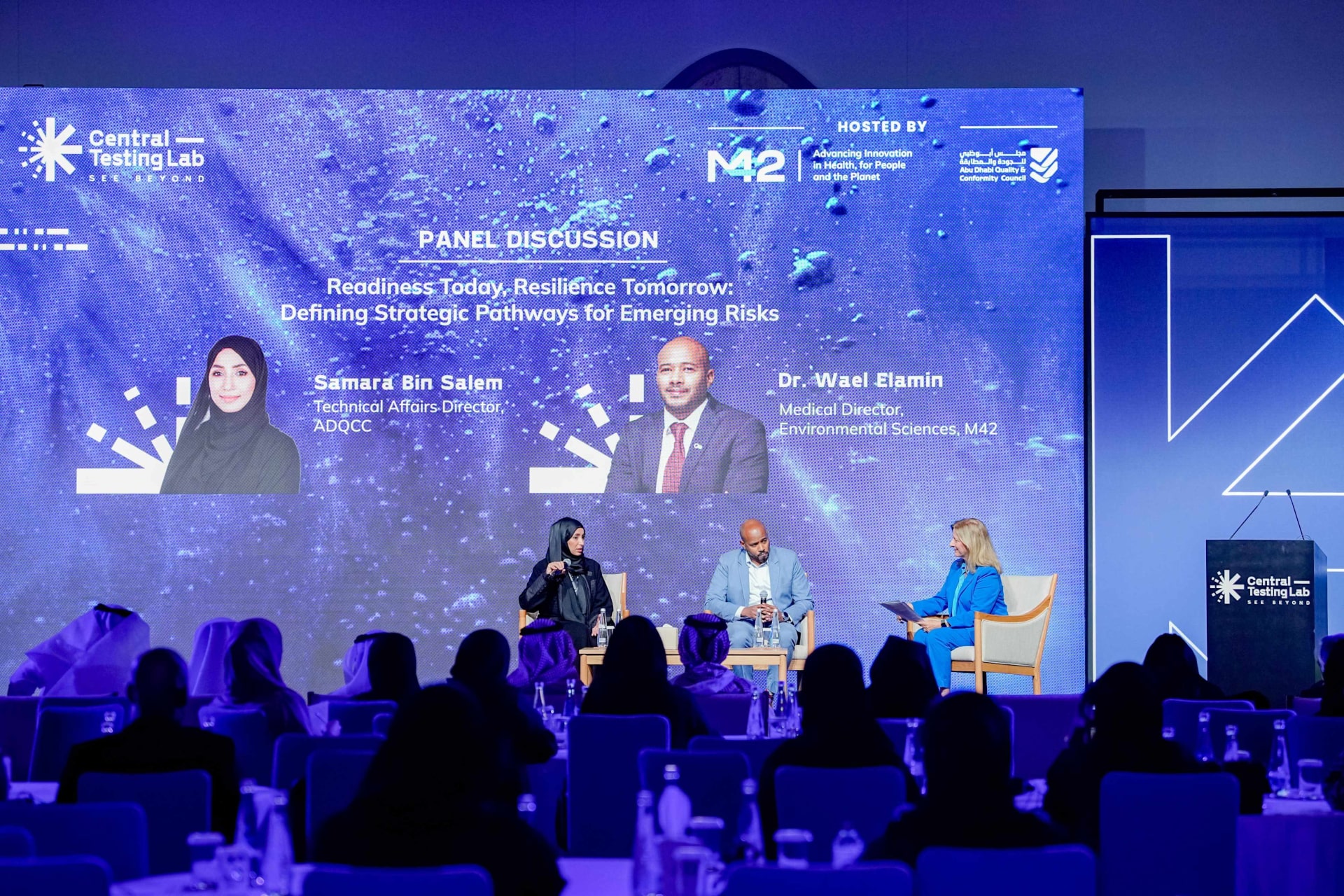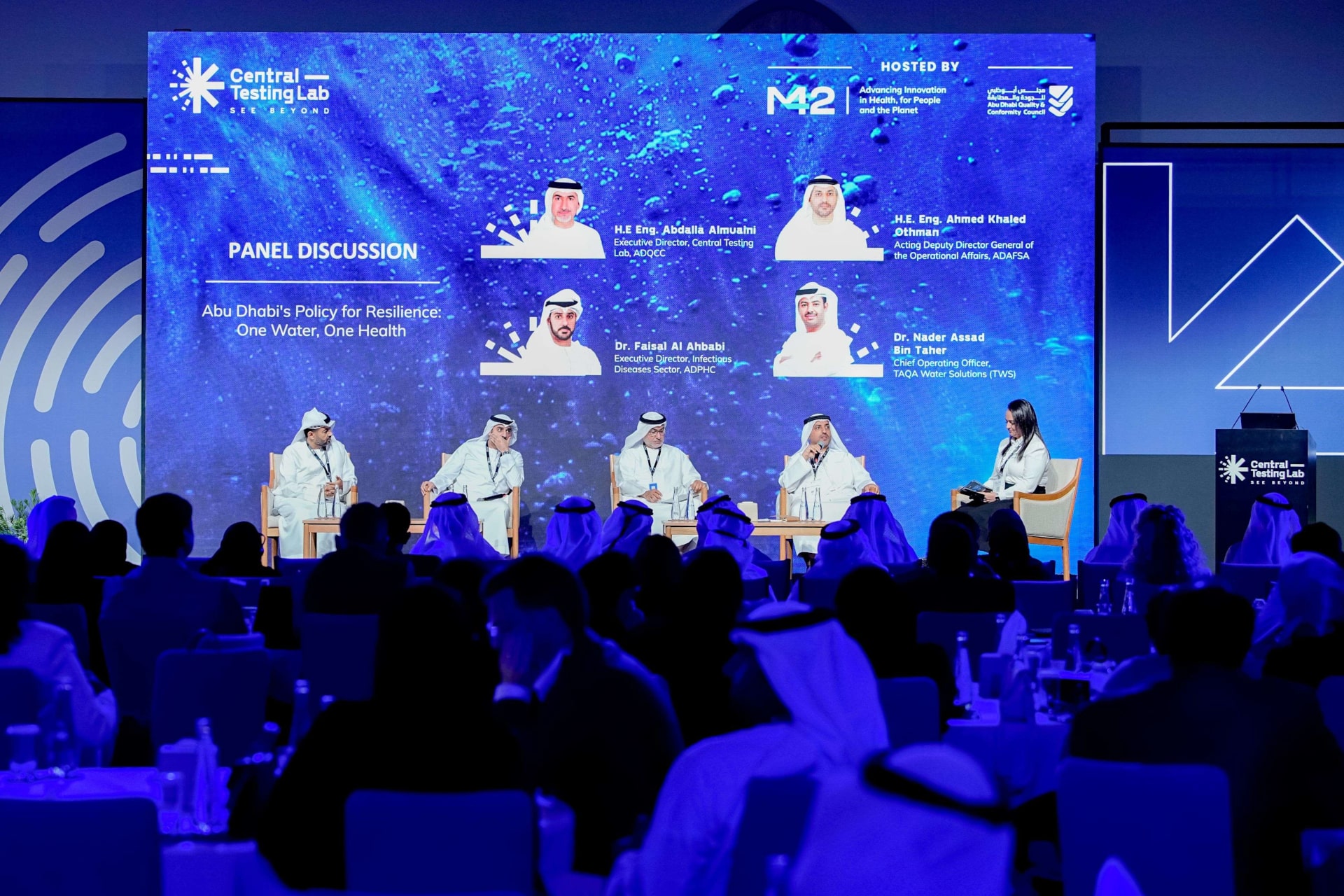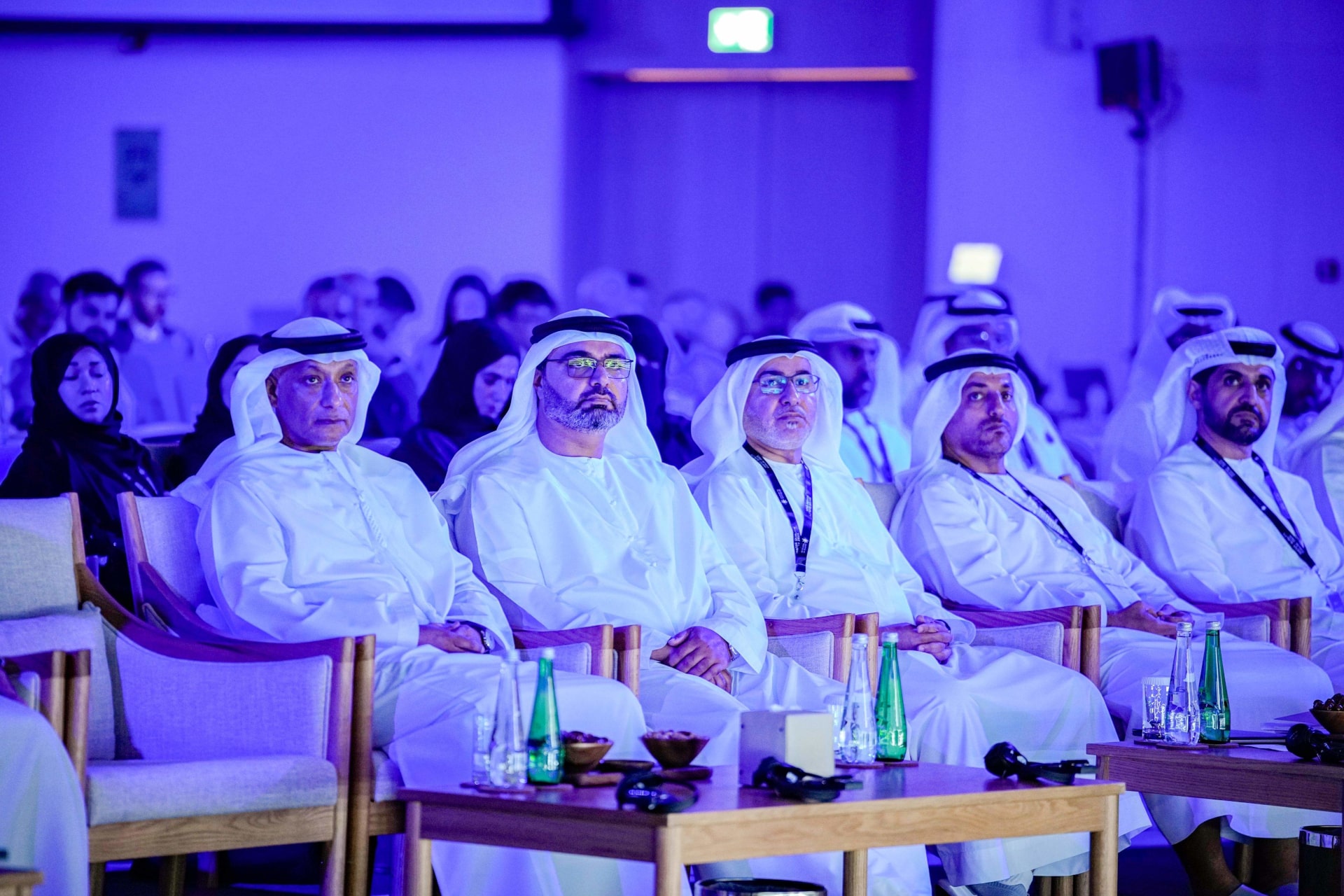UAE Champions Innovation-Led Water Resilience at Landmark Water Quality Forum

More than 300 delegates from government, industry, academia, and civil society gathered in Abu Dhabi for the Water Quality Forum 2025, a high impact two-day event hosted by the Abu Dhabi Quality and Conformity Council (ADQCC) and M42’s Environmental Sciences. Held under the theme “Innovating for Resilience: Water Quality in a Changing World”, the forum explored how innovation, from smarter regulation and advanced testing to bold infrastructure planning and epidemic surveillance, can strengthen water systems and drive resilience in a rapidly changing world shaped by environmental and public health challenges.
Building on the success of last year’s edition, the 2025 event expanded in both scale and ambition. Designed as the region’s leading knowledge platform for innovation in water systems, quality, resilience, and safety, the Forum 2025 underscored the UAE’s unwavering commitment to water stewardship, aligning with global Sustainable Development Goals (SDGs) and national strategies to secure long-term prosperity and public health.
His Excellency Fahed Gareeb Alshamsi, Acting Secretary General, ADQCC, said: “Water quality and safety are a shared responsibility that affects human health and well-being, and form a core element of environmental and economic sustainability. The Abu Dhabi Quality and Conformity Council, in partnership with M42’s Environmental Sciences and with government support, seeks to provide platforms for knowledge exchange, best practices, and advanced solutions in water management. This forum brings together decision-makers and experts worldwide to align visions, discuss challenges, and explore innovations that protect public health, ensure sustainable resources, and promote progress in the water sector. The strong participation we have witnessed reflects a collective commitment to safe and clean water and confirms that cross-sector collaboration is the best path to sustainable development and a healthy society.”

Dr. Fahed Al Marzooqi, CEO of Integrated Health Solutions at M42, said: “The Water Quality Forum puts innovation at the centre of water resilience. It reflects our commitment to proactive and data driven public health and environmental protection. By leveraging AI-powered monitoring, precision testing, and real-time data tools, we are turning data into actionable insights, enabling faster decisions, safer communities and more resilient systems. This forum has brought together the right minds across government, academia, industry, and society to help shape policies, strengthen partnerships and accelerate progress toward sustainable water security across the region for generations to come.”
The dynamic two-day programme featured more than 30 local and international speakers across strategic plenaries, technical seminars, and breakout discussions. From case studies on Per- and Poly-Fluoroalkyl Substances (PFAS) and microplastics, to wastewater surveillance for emerging diseases and outbreak detection, AI dashboards and citizen science projects, the forum spotlighted practical innovations and policy solutions that advance regional water security. Experts explored the future of treatment and reuse, emphasizing advances in desalination, circular systems, and AI-enabled monitoring that are reshaping sustainable practices. Public health was also at the forefront, with sessions highlighting how innovation (including data-driven surveillance and real time response systems) can improve preparedness and governance.
MoU signings between key government and private sector entities reinforced the forum’s role as a platform for strategic action and policy alignment, while the networking reception offered an opportunity for delegates to forge relationships and extend the spirit of collaboration beyond the conference hall.

This year’s forum marks the beginning of a lasting impact. By translating dialogue into actionable roadmaps, strategic partnerships, and measurable commitments, the event has laid the groundwork for stronger water governance, climate resilience and infrastructure innovation across the region. With innovation, collaboration, and community engagement at its core, the Forum has set the stage for future breakthroughs in policy, research, and investment, ensuring that water systems remain a driving force for public health, regional prosperity, and global sustainability.